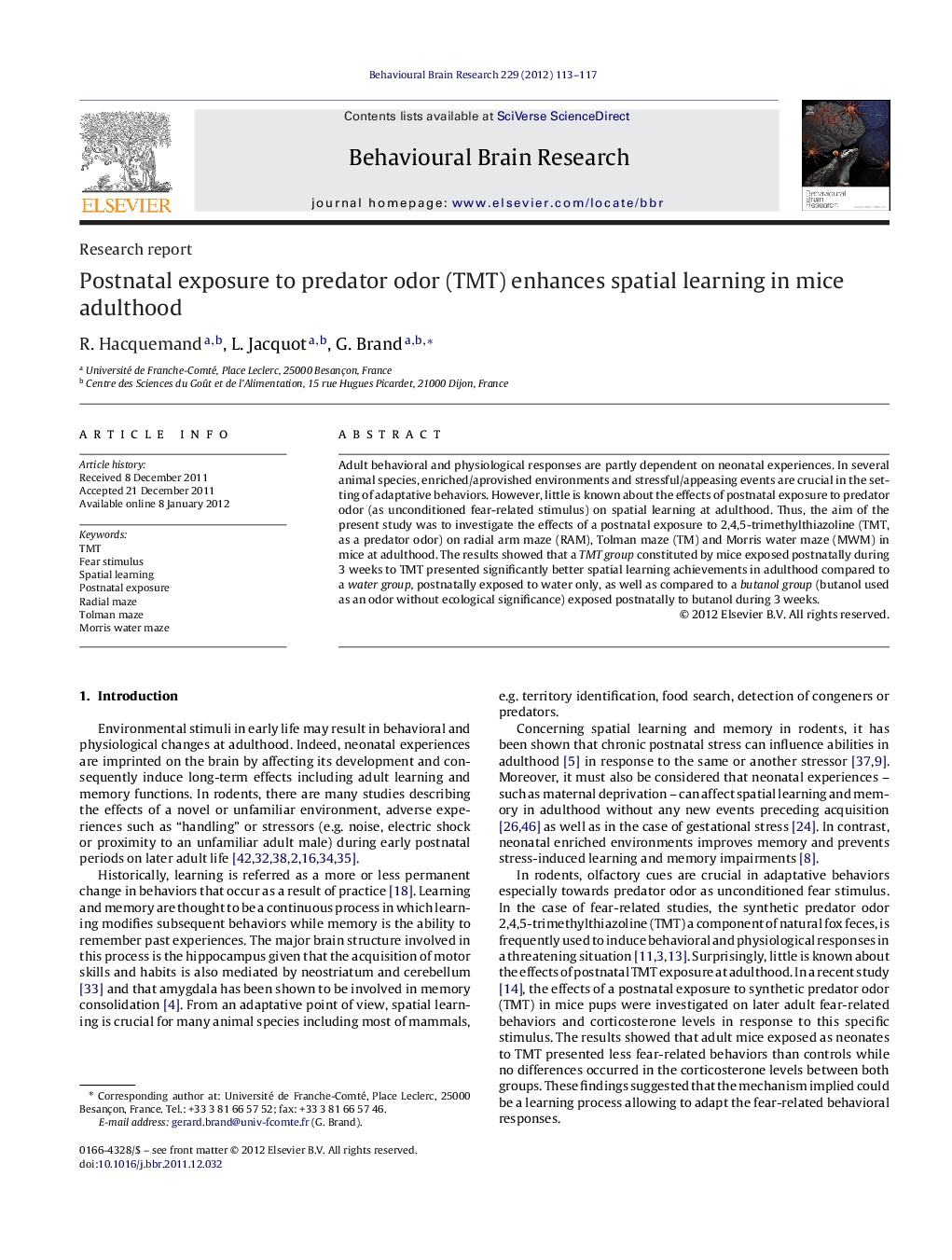| کد مقاله | کد نشریه | سال انتشار | مقاله انگلیسی | نسخه تمام متن |
|---|---|---|---|---|
| 4313350 | 1289994 | 2012 | 5 صفحه PDF | دانلود رایگان |

Adult behavioral and physiological responses are partly dependent on neonatal experiences. In several animal species, enriched/aprovished environments and stressful/appeasing events are crucial in the setting of adaptative behaviors. However, little is known about the effects of postnatal exposure to predator odor (as unconditioned fear-related stimulus) on spatial learning at adulthood. Thus, the aim of the present study was to investigate the effects of a postnatal exposure to 2,4,5-trimethylthiazoline (TMT, as a predator odor) on radial arm maze (RAM), Tolman maze (TM) and Morris water maze (MWM) in mice at adulthood. The results showed that a TMT group constituted by mice exposed postnatally during 3 weeks to TMT presented significantly better spatial learning achievements in adulthood compared to a water group, postnatally exposed to water only, as well as compared to a butanol group (butanol used as an odor without ecological significance) exposed postnatally to butanol during 3 weeks.
► Adult behav/physiol responses are partly dependent on neonatal experiences.
► Postnatal exposure to TMT induces better spatial learning achievement at adulthood.
► These findings were observed in radial arm maze, Tolman maze and Morris water maze.
► TMT data were different from control groups exposed to water only or to butanol.
► These findings suggest a specific effect of postnatal exposure to TMT.
Journal: Behavioural Brain Research - Volume 229, Issue 1, 1 April 2012, Pages 113–117